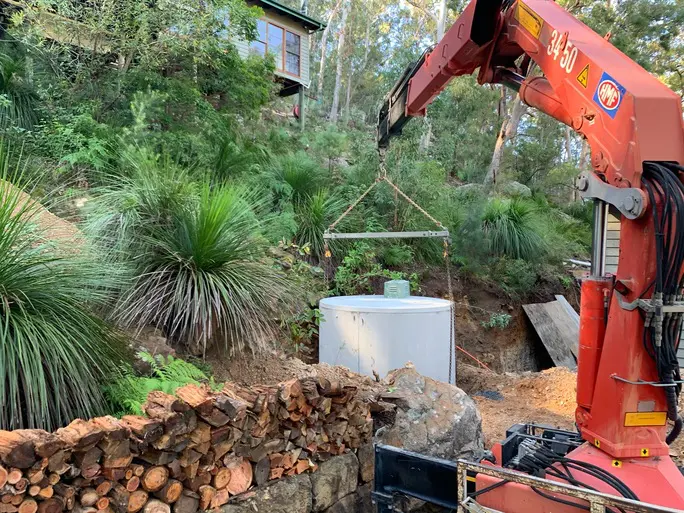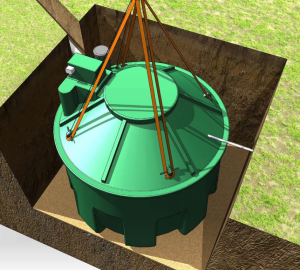New Year, New Pump: Upgrading Your Septic System in 2024
As we step into a new year, it’s an opportune time for homeowners to consider resolutions that go beyond personal goals. Why not make a resolution for your home, specifically your septic system? In this comprehensive guide, we’ll explore the benefits of upgrading septic tank pumps as part of your New Year’s resolution, shedding light on the latest pump technologies, energy-efficient options, and how an upgrade can positively impact both the performance and environmental sustainability of your septic system.
The Importance of a Well-Functioning Septic System
Before we delve into the advantages of upgrading your septic system’s pump, let’s briefly revisit why a well-functioning septic system is crucial. Septic systems play a pivotal role in managing household wastewater, treating it on-site and ensuring the safe disposal of effluent into the soil. A key component of this process is the pump, responsible for facilitating the movement of wastewater from your home to the septic tank and eventually to the drain field.

Recognizing the Signs of an Aging Pump
As we usher in a new year, it’s wise to evaluate the condition of your septic system’s pump. Signs of an aging or inefficient pump include:
Frequent Clogs: If you find yourself dealing with more frequent clogs in your plumbing, it may indicate that your pump is struggling to move wastewater effectively.
Unusual Noises: Unusual sounds coming from the pump, such as grinding or clicking, could signify mechanical issues that may warrant an upgrade.
Increased Energy Bills: Older pumps tend to be less energy-efficient, leading to higher energy consumption and increased utility bills.
Inconsistent Flushing: If you notice inconsistent flushing in your toilets or slower drainage in sinks and showers, it could be a sign of pump inefficiency.
Exploring the Latest Pump Technologies
The realm of septic system pumps has seen significant advancements in recent years. Here are some of the latest technologies that homeowners should consider when upgrading:
1. Variable Speed Pumps:
Unlike traditional single-speed pumps, variable speed pumps adjust their speed based on the current demand. This not only enhances efficiency but also reduces energy consumption.
2. Smart Pump Controllers:
Integration with smart controllers allows homeowners to monitor and control their septic system remotely. This technology provides real-time insights, enabling proactive management.
3. High-Efficiency Motors:
Pumps with high-efficiency motors are designed to operate with minimal energy wastage, contributing to overall energy savings for the household.
4. Dual Pump Systems:
Dual pump systems offer redundancy, ensuring that if one pump fails, the other can take over, minimizing the risk of system failures and backups.
5. Pressure Sewer Systems:
Pressure sewer systems use a grinder pump to macerate waste, allowing for the efficient transport of sewage through small-diameter pipes. This technology is particularly useful in challenging terrain.
Benefits of Upgrading Your Septic System Pump
1. Improved Efficiency:
Upgrading to a modern pump translates to enhanced efficiency in wastewater transport. This means fewer clogs, consistent flushing, and optimal performance.
2. Energy Savings:
Energy-efficient pump technologies can significantly reduce the electricity consumption of your septic system, leading to lower energy bills and a lighter environmental footprint.
3. Longer Lifespan:
Modern pump designs often come with improved durability and longevity, reducing the frequency of replacements and associated costs.
4. Environmental Sustainability:
By investing in energy-efficient and environmentally friendly pump technologies, homeowners contribute to the overall sustainability of their property. This aligns with the increasing emphasis on eco-conscious living.
5. Smart System Management:
Smart pump controllers allow for remote monitoring and management of the septic system. Homeowners can receive alerts, track usage patterns, and make informed decisions to optimize system performance.
Making Your New Year’s Resolution a Reality
Now that we’ve highlighted the benefits of upgrading your septic system pump, it’s essential to consider how to turn this resolution into a reality:
1. Professional Assessment:
Start by having a professional septic system inspection. An experienced technician can assess the condition of your pump and recommend the most suitable upgrades.
2. Budget Planning:
Research the cost of modern pump technologies and factor this into your budget. Consider it an investment in the long-term health and efficiency of your septic system.
3. Choosing the Right Technology:
Work with your septic system professional to choose the right pump technology for your specific needs. Consider factors such as property size, usage patterns, and environmental conditions.
4. Scheduling the Upgrade:
Once you’ve chosen the technology and budgeted for the upgrade, schedule the installation with a reputable septic system service provider. Consider timing that aligns with the system’s low-demand periods.
5. Monitoring and Maintenance:
After the upgrade, embrace the benefits of smart system management. Regularly monitor the performance of your septic system and schedule periodic maintenance to ensure continued efficiency.
As you embark on a new year, consider making the resolution to upgrade your septic system pump. The benefits—improved efficiency, energy savings, and environmental sustainability—are not only advantageous for your home but also contribute to a more sustainable future. By investing in the latest pump technologies and embracing modern septic system management practices, homeowners can ensure a seamless and eco-conscious wastewater treatment process for years to come. Make 2024 the year your septic system gets the upgrade it deserves.
For a Free Quote and Sizing on all Septic Tanks Made in Australia call the team at Eco-Septic on 1800 808 135
Related Posts
- Below-Ground Septic Tanks: Sydney’s Septic Solutions
- Secrets to an Odour-Free Septic System
- Why Do We Need Domestic Treatment Plants?
- How to conduct regular maintenance on your septic tank system
- What Are The Sources Of Wastewater?
- Why Eco Septic Tanks are the Eco-Friendly Choice for Your Home
- What is a residential greywater system?
- How Much Sewage Is Produced Per Person?





